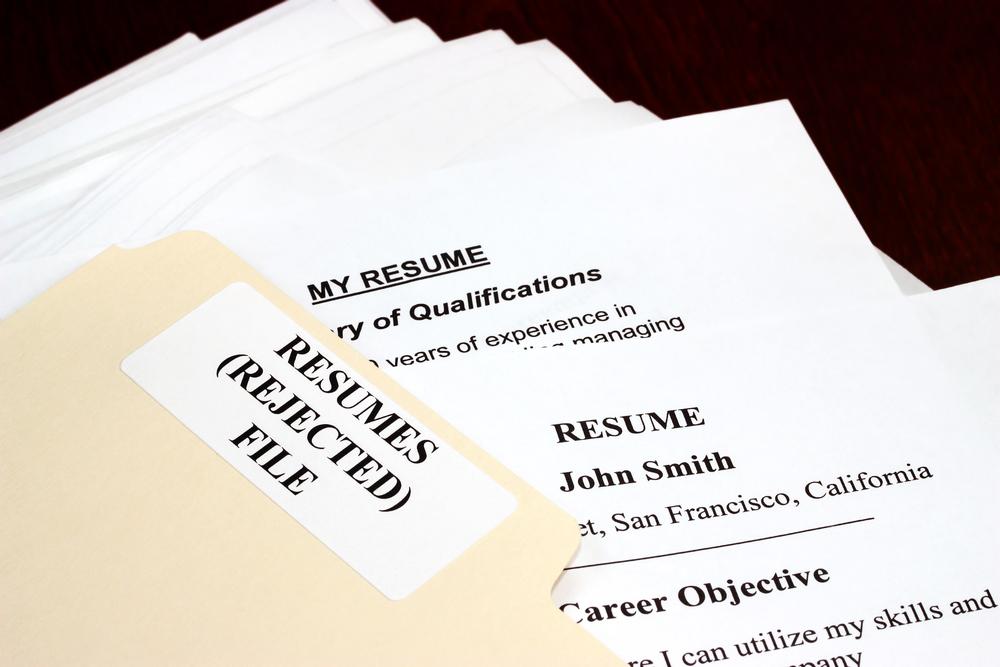“Sometimes there is no next time, no time-outs, no second chances. Sometimes it’s now or never.”
– Alan Bennett, English Author and Actor
This famous quote by Alan Bennett is never truer than when you submit your resume. Most likely, this is the first glimpse that an employer will get of you. Also, this is one of those ‘sometimes’ when you will not get a second chance, so might as well make the first impression a remarkable one !
A great resume can open a door, but an inferior one can just as quickly close one. Listed below are the top five resume mistakes and tips on how to avoid them.
1) Typos and Grammatical Errors, guaranteed resume killers
Believe it or not, in this day and age of technology (read: MS Word’s spell check feature as well as other similar features) typos and grammatical errors are one of the most common resume mistakes. A 2013 CareerBuilder survey found that 58% of resumes have typos. If a recruiter spots typos on your resume then he/she is going to assume you lack attention to detail, an undesirable trait for a job candidate.
Fix: Get your resume read by atleast three other people who have a good command over the English language. A fresh pair of eyes will easily spot the mistakes that you might have overlooked while fine tuning your document.
2) Incorrect Contact Information, how is that phone going to ring?
Though this may seem obvious, one of the most common resume mistakes that candidates make is mentioning incorrect phone numbers or email addresses (and in some cases, both!). I once worked with a graduate who seemed like a winner, but was not receiving any interview calls. Starting from the top, I asked him whether his contact information was correct. Lo and behold, it wasn’t! The phone number on his resume was his old number, now out of service. Once he corrected his phone number, his phone would not stop ringing!
Fix: Check your contact details again and again. You may even call the number listed on your resume to make sure it is your phone that is ringing. Further, you can get the contact details mentioned on your resume verified by a good friend or a family member (the ones who remember your number). In this case too, a fresh pair of eyes should help.
3) Lies. Honesty is the best policy!
According to a 2015 CareerBuilder survey 56% of employers have caught a lie on a resume. The most common areas around which candidates lie are embellishment of skills (62%), embellishment of responsibilities (54%), dates of employment (39%), job titles (31%), and academic degrees (28%). Ofcourse, I do not need to tell you that this does not sit well with recruiters.
Fix: If you feel that you do not meet all the requirements mentioned in a job description, you can creatively, but truthfully position yourself. Also, remember employers are willing to consider candidates who do not meet all the requirements of a job description. They can be convinced to hire you by mentioning your past achievements as well as examples of your quick learning abilities.
4) Mentioning Responsibilities instead of Achievements. Numbers please!
Undoubtedly, real, impactful achievements sell more than responsibilities on a resume. Most recruiters are well-versed with general responsibilities associated with each job title, in their respective fields of expertise. Instead of telling them what you were expected to do in your job (which they have a fair idea about), tell them what you achieved within the gamut of your responsibilities. Convince them how their investment in you would yield a higher ROI for the company.
Fix: Never use phrases such as ‘Responsible for’, ‘Duties included’, or ‘In charge of’. Instead mention how you have helped your past employers save time, make money, improve productivity, solve a specific problem, be more competitive, expand the business, or attract new customers. As far as possible, quantify achievements. Numbers immediately attract a recruiter’s eye.
5) Listing References Directly on your resume
Never mention your references’ contact details directly on your resume. This is because resumes are stored in company/recruiters’ databases for long periods of time. Your references’ contact details might be misused for purposes other than providing a reference for you. Misuse of their information would result in invasion of their privacy, which, in turn might irritate them and make them question your professionalism and ability to maintain confidential data.
Fix: References should be listed on a separate sheet of paper and submitted only when specifically asked for by employers. Also, mentioning the phrase ‘References are Available on Request’ is optional because it is a given that you will provide references if asked for. However, it can serve the purpose of signalling the end of your resume.
Though these mistakes seem pretty basic, one or more of them are seen by hiring managers all the time. Use the above mentioned quick fixes to make sure your resume is squeaky clean and sets the right impression, the first time around itself. Remember, you never get a second chance to make a first impression!




No
Comments